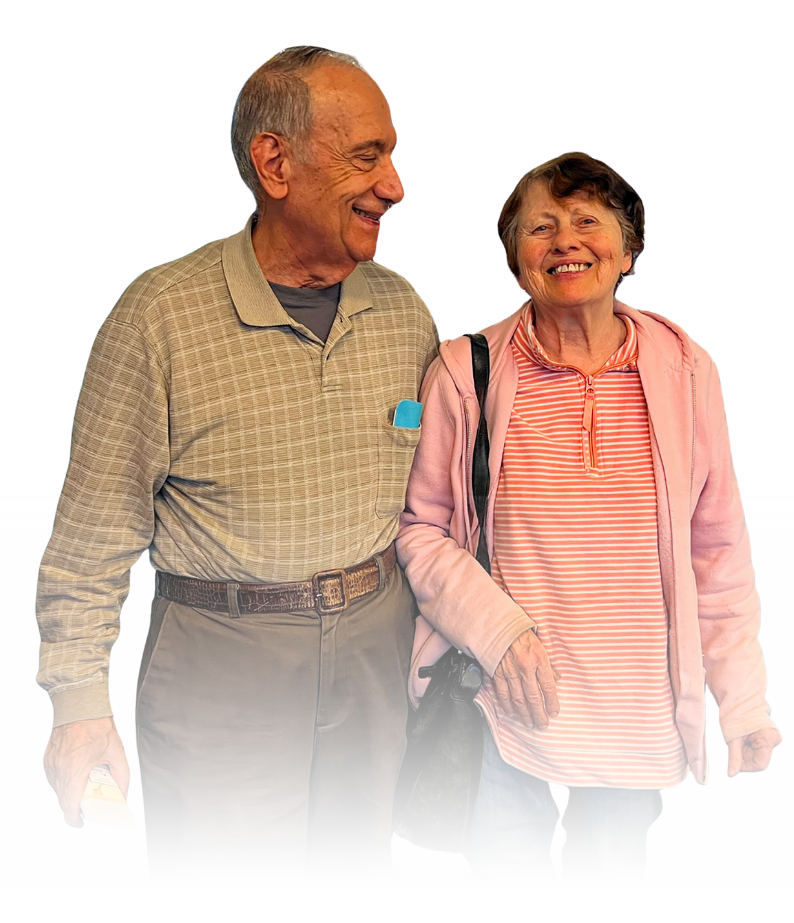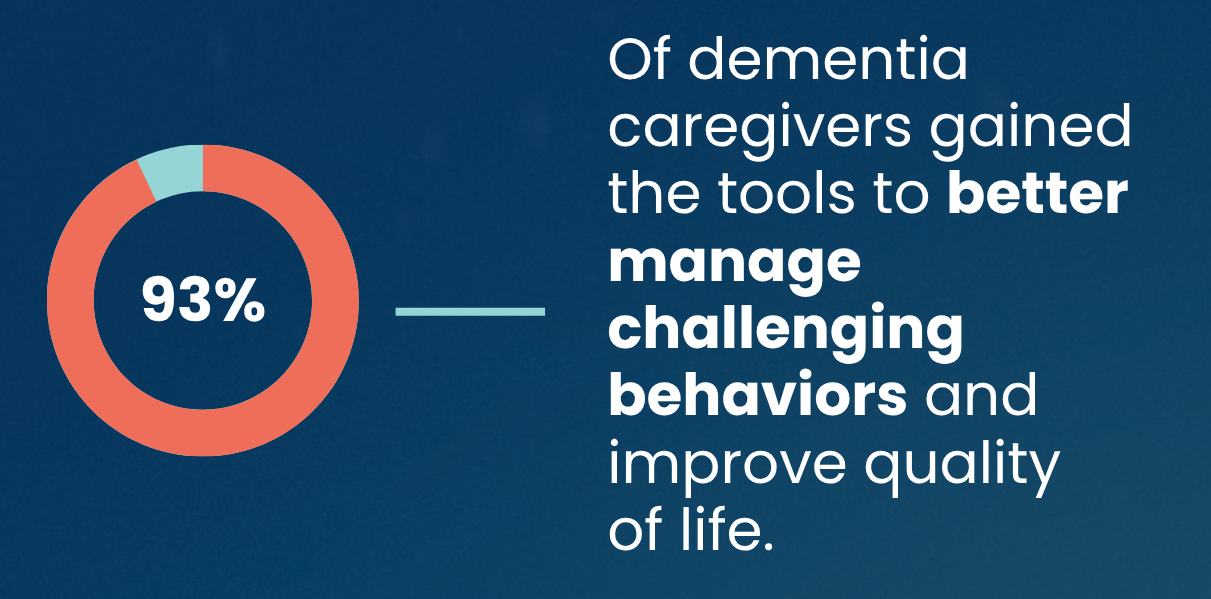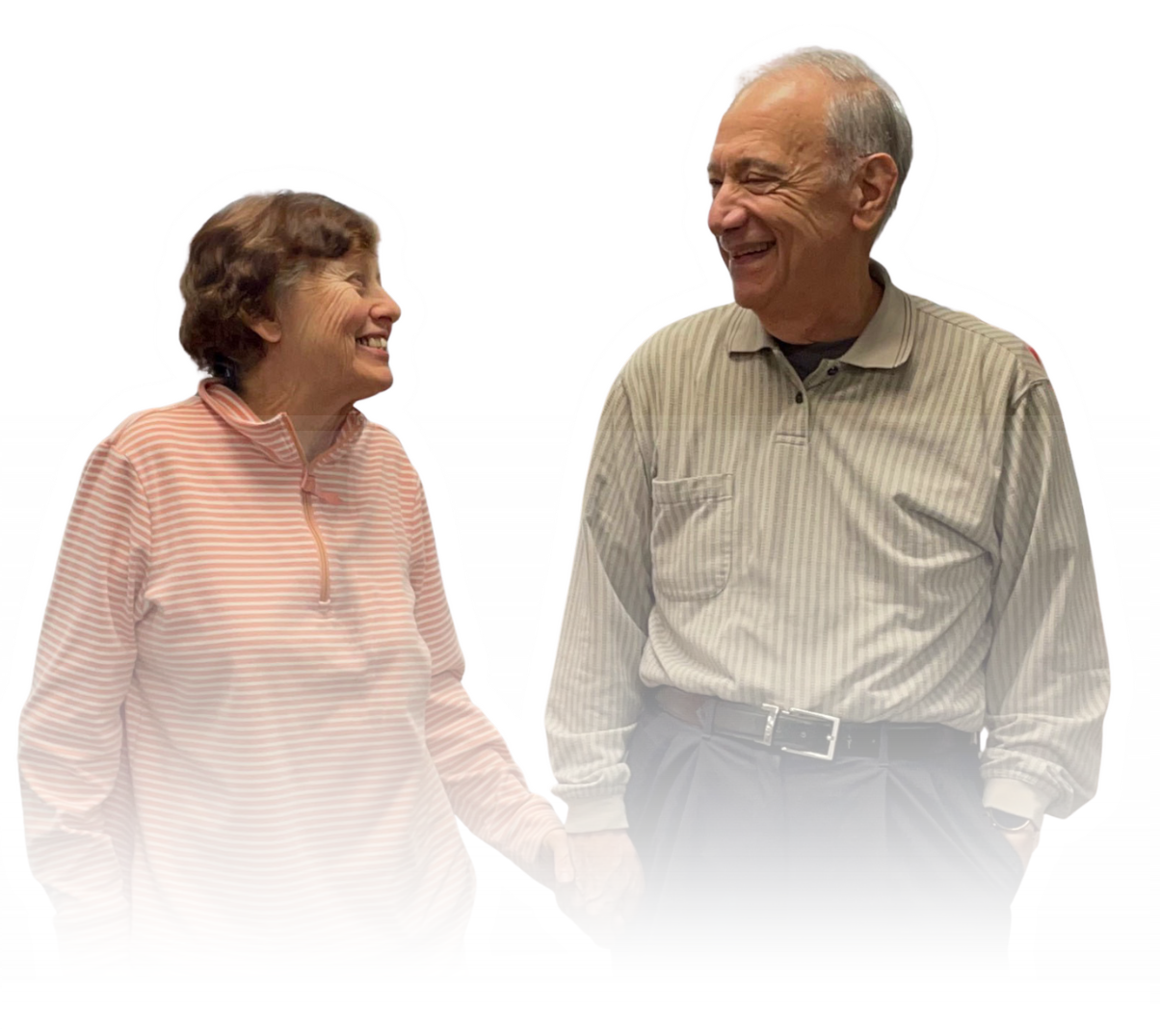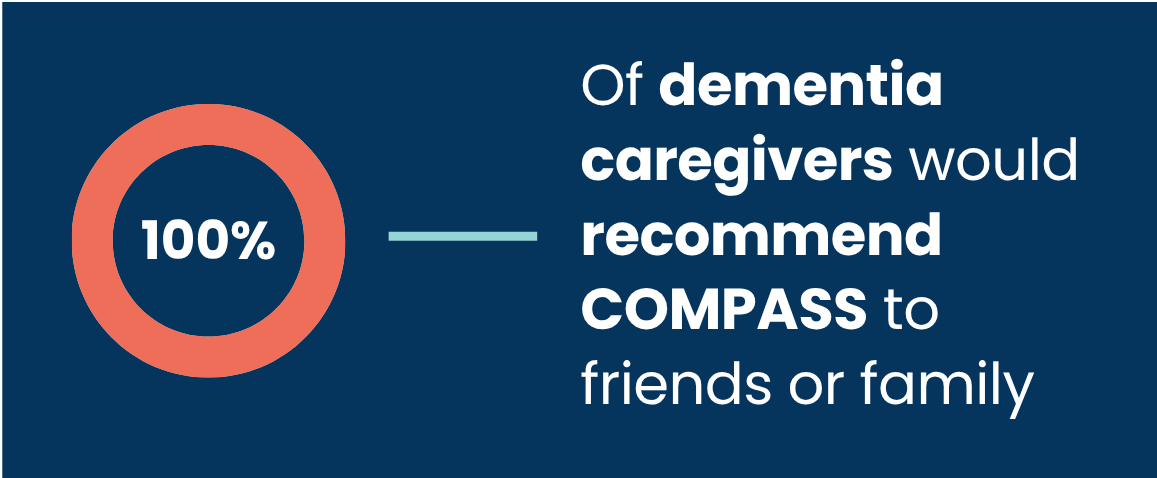Kathy and Bill’s Story
 Kathy and Bill came to the JFS COMPASS program for support in 2022; Kathy had been diagnosed a few years earlier with frontotemporal dementia/primary progressive aphasia. She was being seen by a neurologist at an academic medical center in the region once or twice a year, but the family sought additional support beyond these medical visits.
Kathy and Bill came to the JFS COMPASS program for support in 2022; Kathy had been diagnosed a few years earlier with frontotemporal dementia/primary progressive aphasia. She was being seen by a neurologist at an academic medical center in the region once or twice a year, but the family sought additional support beyond these medical visits.
“The COMPASS program provides specialized medical care for individuals with dementia, with an equal focus on providing critical support for family caregivers, including individualized education, counseling, and assistance accessing resources,” said Dr. Maria D’Souza, Geriatrician and Medical Director of COMPASS.
“I really felt that this type of approach was missing from the traditional medical model,” continued Dr. D’Souza. “So many families are struggling on their own without adequate guidance and support after a dementia diagnosis, if they even get one at all.”
Bill and Kathy’s children were worried about their parents; Bill was a very devoted husband to Kathy, but they were beginning to struggle with everyday things due to certain behavioral symptoms.
For example, Bill and Kathy went to the YMCA almost daily to exercise but Bill noticed over time that Kathy had begun to wander away from him and into common areas of the gym. Bill knew that his wife needed additional care.
The family got in touch with COMPASS Care Manager Kate Gruber, whose calm presence gave them an instant sense of relief. Dr. D’Souza helped connect them with the Meeting of Minds program at the Newark Senior Center, a guided group experience focusing on socialization and engagement for individuals with cognitive changes. “I would take Kathy there three times a week,” said Bill. “I found it so beneficial for Kathy and for myself.”
 The COMPASS team also helped Kathy and Bill connect with a companion to go to the gym with them and help Kathy. Kathy initially had some hesitations about using an additional caregiver, but once she got comfortable with the companion helping her at the gym, Kathy was also accepting of companionship support at home as well.
The COMPASS team also helped Kathy and Bill connect with a companion to go to the gym with them and help Kathy. Kathy initially had some hesitations about using an additional caregiver, but once she got comfortable with the companion helping her at the gym, Kathy was also accepting of companionship support at home as well.
Alongside this, Dr. D’Souza made a referral to an occupational therapist who saw Kathy at home and coached the family around strategies to reduce challenges with some of Kathy’s daily care needs.
“Dr. D’Souza and the COMPASS team go beyond what services I would normally get from a primary care physician or a neurologist,” said Bill. “She would meet with us once every three months, and she would meet with the entire family to develop a care plan. And with the whole family there, it was pretty easy to follow that care plan.”
Bill also enrolled in the COMPASS Savvy Caregiver class, which is an evidence-based, group training program to develop caregiving skill mastery for family members providing care for people with dementia.
“The Savvy Caregiver program was a G*d-send,” said Bill. “It gave me a better understanding of what Kathy was going through, and it gave me the tools to handle certain behavioral aspects of dementia. And beyond that, you develop a relationship with the other caregivers and share information that can be helpful.”
 Bill also began meeting regularly with a JFS therapist on the COMPASS team to help him cope with the stresses of caregiving and focus on his own self-care, which he cites as a tremendous support in helping him provide the best care he could for Kathy. A couple of sessions even incorporated Bill and Kathy’s children, to help the family discuss how to best support Kathy’s care needs and each other.
Bill also began meeting regularly with a JFS therapist on the COMPASS team to help him cope with the stresses of caregiving and focus on his own self-care, which he cites as a tremendous support in helping him provide the best care he could for Kathy. A couple of sessions even incorporated Bill and Kathy’s children, to help the family discuss how to best support Kathy’s care needs and each other.
When COMPASS began working with Bill and Kathy, Kathy was entering the moderate stage of dementia. With help from the COMPASS team, her family, and her caregivers, she was able to enjoy the things she loved: word searches, shopping, and attending regular family gatherings and church every Saturday.
But over time, her ability to do daily activities and recognize loved ones declined. The COMPASS team helped the family navigate changing goals for Kathy’s care and facilitate the tough conversations that accompany life with dementia.
 When it came time to help Kathy experience a comfortable and dignified end of life, a COMPASS therapist again met with the entire family to help them navigate their own emotions and needs as a family alongside the difficult medical decision-making for Kathy.
When it came time to help Kathy experience a comfortable and dignified end of life, a COMPASS therapist again met with the entire family to help them navigate their own emotions and needs as a family alongside the difficult medical decision-making for Kathy.
After Kathy’s passing in January 2025, Bill continued to see his individual therapist at JFS for grief support and is a volunteer for the COMPASS Memory Cafe. He attends regular COMPASS community social gatherings and participated in a therapeutic walking group to connect with other caregivers.
“The COMPASS program has helped me considerably,” said Bill. “We are so grateful for the support they have provided for our family.”
Click here to learn more about the COMPASS program.
None of the work we do would be possible without your support. We can’t do this alone. Together, we can continue the essential work. Click here to donate to the JFS Delaware Annual Appeal.

